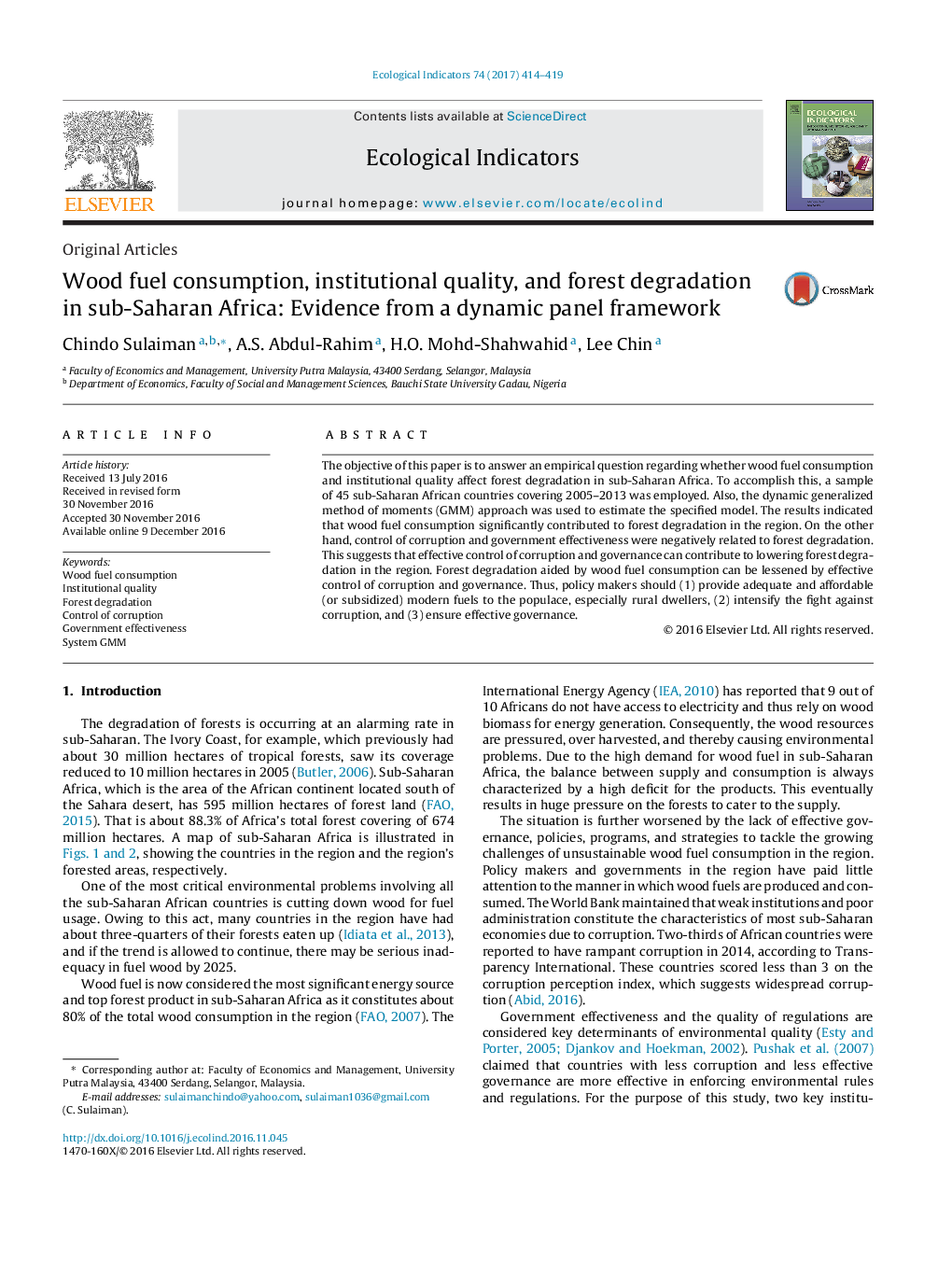| Article ID | Journal | Published Year | Pages | File Type |
|---|---|---|---|---|
| 5741867 | Ecological Indicators | 2017 | 6 Pages |
â¢The impact of wood fuel consumption and institutional quality on forest degradation examined.â¢GMM was used to estimate the results for sub-Saharan African region.â¢The specific impact of control of corruption and government effectiveness on forest degradation examined.â¢Provision of adequate and affordable modern fuels, strengthening fight against corruption and effective governance are recommended to minimize forest degradation.
The objective of this paper is to answer an empirical question regarding whether wood fuel consumption and institutional quality affect forest degradation in sub-Saharan Africa. To accomplish this, a sample of 45 sub-Saharan African countries covering 2005-2013 was employed. Also, the dynamic generalized method of moments (GMM) approach was used to estimate the specified model. The results indicated that wood fuel consumption significantly contributed to forest degradation in the region. On the other hand, control of corruption and government effectiveness were negatively related to forest degradation. This suggests that effective control of corruption and governance can contribute to lowering forest degradation in the region. Forest degradation aided by wood fuel consumption can be lessened by effective control of corruption and governance. Thus, policy makers should (1) provide adequate and affordable (or subsidized) modern fuels to the populace, especially rural dwellers, (2) intensify the fight against corruption, and (3) ensure effective governance.
